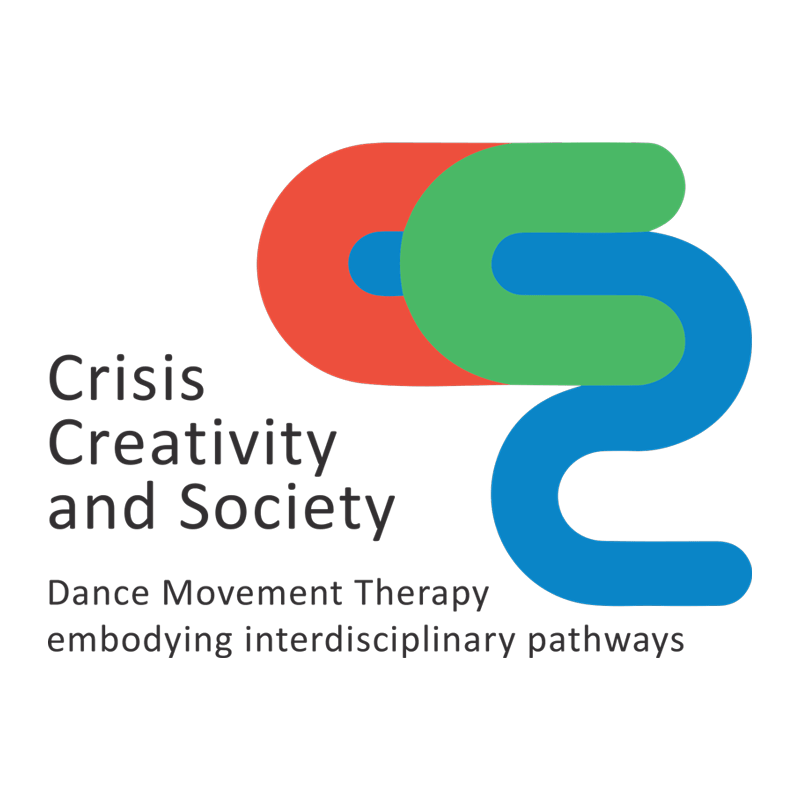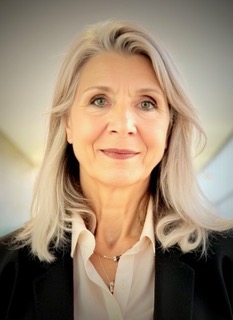2nd EADMT Conference – 2016 / Crisis, Creativity and Society

European Association Dance Movement Therapy announces 2nd EADMT Conference: CRISIS, CREATIVITY and SOCIETY; Dance Movement Therapy Embodying Interdisciplinary Pathways September 9th – 11th 2016 in collaboration with Associazione Professionale Italiana Danza Movimento Terapia
EADMT is engaged in a process of reaching out and incorporating multidisciplinary practice that uses the expressive, creative body to support health and wellbeing of individuals, groups and communities across society. In the light of the current critical social and political climate, EADMT aims to strengthen the knowledge and skills of practitioners and researchers who highlight the value of the bodymind and creativity. This conference aims to integrate and collaborate with colleagues whose focus is on research and/or development of the notion of embodiment in practice.
Our vision for this conference is to provide a learning experience that embraces the mind and the body as key aspects of research and practice. We present high quality keynote and panel presentations, posters and workshops that bring together scientists and creative researchers and practitioners. Over these three days we wish to provide spaces for discussion, reflection and collaboration. Following the conference the Scientific and Organisation Committees will identify several presentations for publication in an edited volume to record the 2016 Conference – Crisis, Creativity and Society.

Dr. Marija Jakubauskienė is a public health expert, researcher and academic leader currently serving as the Minister of Health of the Republic of Lithuania. Dr. Jakubauskienė brings to the role more than two decades of experience in public health science, biomedical research, medical humanities and health policy development.
Dr. Jakubauskienė holds a PhD in Biomedical Sciences from Vilnius University, where she also earned advanced degrees in Business Administration and Entrepreneurship and Innovation Studies. She has held a number of senior academic positions, including Associate Professor and Director of the Institute of Health Sciences at Vilnius University’s Faculty of Medicine. Her leadership has extended to international engagement as Vice-Dean for International Affairs and Programmes and as a recognized lecturer, awarded Best Lecturer of the Faculty in 2023. Internationally, Dr. Jakubauskienė has played an active role in advancing public mental health through her contributions to the European Public Health Association (EUDHA), where she has served as President of the Public Mental Health Section and as a member of the International Scientific Committee. Her research interests included population health science, mental health, health system, policy research and medical humanities.
Since 2015 from the beginning of the Art Therapy Master study programme at Vilnius University Dr Jakubauskiene has been coordinating and teaching biopsychosocial health, clinical practice and ethics subject as well as supervising research projects of master students in Art Therapy. Dr Jakubauskiene has continuously contributed to the development of synergies in arts, culture and health ecosystem in Lithuania.
Keynote lecture: The Perspective of Arts Therapies within Integrated Care in Lithuania
Dance Movement Therapy is a pivotal element of art therapy practice and can play a significant role in supporting health and wellbeing of individuals in the aging and multimorbid society. Effectively addressing complex health needs remains a challenge for healthcare systems. Integrated care model aims to respond to these growing complex health and social needs in our societies. Expanding integrated care model by the approaches and tools of arts therapies may contribute to better health and wellbeing of patients and communities.
In Lithuania, arts therapies—including art, music, drama, and dance movement therapy—are formally integrated into the national healthcare system, supported by accredited master’s programs through collaboration between medical and arts institutions. These therapies are applied in diverse clinical and community contexts to support individuals with mental health conditions, chronic illnesses, trauma, and social exclusion.

Dr. Rosemarie Samaritter is a registered dance movement therapist and supervisor and an independent researcher. With more than 40 years of clinical experience she has built specific expertise in the application of DMT in complex trauma, personality disorders, neurodiversity and disorders with impaired sense of self.
As one of the pioneers of DMT in the Netherlands, she was involved in the development of the first BA training in dance therapy, now situated at Zuyd
University of Applied Sciences and the initiation of the dance therapy chapter of the Dutch Association of Creative Therapies, the predecessor of the current Dutch Association of Dance Movement Therapists (NVDAT). As an associate professor at Codarts University of the Arts Rotterdam, Rosemarie was involved in the Master ofArts’ DMT curriculum and conducted DMT related research. Currently, her specific research interest is in documenting DMT interventions from first-hand knowledge of DMT practitioners and develop systematic intervention descriptions. For severalyears, Rosemarie participated in the EADMT research chapter. She teaches, presents and publishes regularly on DMT theory, methods and research in the Netherlands and abroad.
Choreographies of Change, independent academic space for DMT:
http://www.choreographiesofchange.org
ORCID: https://orcid.org/0000-0001-7717-5712
Google scholar: https://scholar.google.com/citations?user=mljXpAcAAAAJ&hl=en
Keynote lecture: 15 years into European Association of Dance Movement Therapy: from co-creating a professional identity towards unfolding professional landscapes
With the upcoming conference, we will celebrate the 15th anniversary of the European Association for Dance Movement Therapy (EADMT), at a time when Dance Movement Therapy (DMT) is advancing in Europe and globally.
EADMT’s 5th conference revolves around three central themes: VISIBILITY – VITALITY – VISION.
With these themes and a range of related questions, EADMT has opened a broad horizon for participants to reflect on our profession and the various challenges for DMT in the professional field. Contributions to the conference reflect multiple perspectives informed by personal practices, national and international developments, and current societal, economic, and political contexts.
The keynote address will examine the integral role of the EADMT in co-creating a professional identity from various national traditions. The discussion will also explore how the current DMT landscape is relevant to contemporary questions and future directions for the European DMT community.
Over the past 15 years, the EADMT, in collaboration with numerous dedicated colleagues, has evolved into a systemic container for the European DMT community, where members find each other to advance the profession. However, several challenges persist, including:
– enhancing the professional profile of DMT
– articulating and showcasing DMT’s specific contributions to the mental health field
– adapting to changing societal contexts and challenges
– building budgets for professional development and research
The keynote address will explore how our artistic roots, clinical identities, and academic and philosophical foundations can enhance and vitalise our vision and visibility. We will discuss models from organisational aesthetics (Creed et al., 2020) that incorporate concepts such as resonance (Rosa, 2016) and aesthetic unfolding (Barrett, 2000). These models may be well-suited to develop comprehensive frameworks that promote sustainable structures for the European DMT community, helping us stabilise and expand our position within the Creative Arts Therapies (CATs) and in the broader context of health and well-being.
Susan Scarth President, Antonella Monteleone Secretary Genera, l Shirley Mawer Treasurer, Julia Morozova Communications & PR, Vincenzo Puxeddu Training Standards
Mila Sanna President APID, Elena Fossati APID Secretary, Brigida Rosa Vice President, Maria Ciraso, Sara Diamare, Simonetta Ottone, Simonetta Cianca
Co-ordinator: Rosa Maria Rodriguez-Jimenez – Universidad Europea di Madrid
Sabine Koch University of Heidelberg, Germany
Iris Bräuninger University Hospital of Psychiatry Zurich, Switzerland
Helen Payne University of Hertfordshire, UK
Vincenzo Puxeddu René Descartes Paris University, France
Helen Payne Conference publication editor Body, Movement and Dance in Psychotherapy: An
International Journal for Theory, Research and Practice. Taylor & Francis: UK
Rosa Mª Rodríguez-Jiménez, Sabine Koch, Iris Bräuninger, Helen Payne, Vincenzo Puxeddu, Rosmarie Samaritter, Marja Cantell, Diana Fischman, Hilda Wengrower, Suzi Tortora, Elena Mignosi, Céline Butté, Caroline Frizell, Rosa Maria Govoni, Richard Coaten, Geoffery Unkovich
The conference aims to promote communication and diversification of ideas and practice between the Dance Movement Therapy community and other disciplines in order to learn and grow from mutual exchange.
The conference Scientific Committee invites the submission of research papers of excellent quality in all areas related to the sub-themes. Authors with original research are encouraged to submit contributions related to:
We invite researchers and practitioners from different fields to present their work and enter into discussion and reflection with colleagues throughout the conference. Where there is ongoing interdisciplinary practice and research being undertaken in the field, we encourage submissions from these teams.
Submissions are invited for the following formats – oral presentations: 20 minutes, workshops: 90 minutes, and posters.
Proposals will be presented as follows:
– a maximum of 2000 words for oral presentations
– 1000 words for workshop and poster contributions
Authors are advised to ensure their contribution meets the criteria and guidelines below. All contributions will be submitted to a double-blind review for:
Acceptance for contribution in the programme and assignment to a session are determined solely by the Scientific Committee based on a review of the paper and its subject matter. Decisions of the Scientific Committee are final.
Submitting authors are required to ensure that all listed co-authors have reviewed the abstract, take responsibility for its content and agree with being listed as co-author.
Following the double-blind review, authors of accepted papers will be asked to submit their final version
Deadline June 1st, 2016 to include modifications suggested by the reviewers,
Both previous and final versions must adjust to the guidelines as indicated in the document “Template for Contributions” (see below). Authors are encouraged to read these guidelines carefully before submission.
The standard format for oral presentations are 20 minutes in length.
Poster sessions give participants a chance to network with other delegates who may be interested in similar research or other disciplines.
The dimensions of a poster are as standard – 70 x 100 cm or A0 format 84.1 x 118.9 cm
A workshop is an intensive experiential session lasting 60 to 90 minutes led by an experienced practitioner.
Suitable papers submitted will be invited for consideration for publication in the international peer
reviewed journal ‘Body, Movement and Dance in Psychotherapy’ published by Taylor and Francis.
The registration fee includes participation in the conference events, the conference kit, coffee breaks; It does not include overnight stays and meals.
For group registration, at least 10 participants, is applied a discount of 10% on the Total quota!
€ 226.00 per person before April 1.
€ 252.00 per person from 2 April to 25 July 2016.
€ 252.00 per person from 25 July.
Send money transfer with the total quota, with the number of participants enrolled and send registration form with data of each participant.
Before 1 April 2016: € 200.00
From 2 April onwards: € 252.00